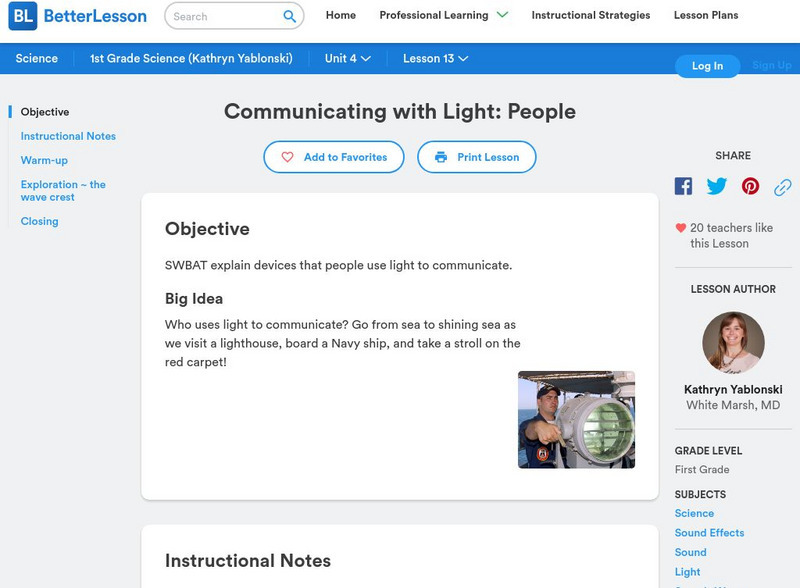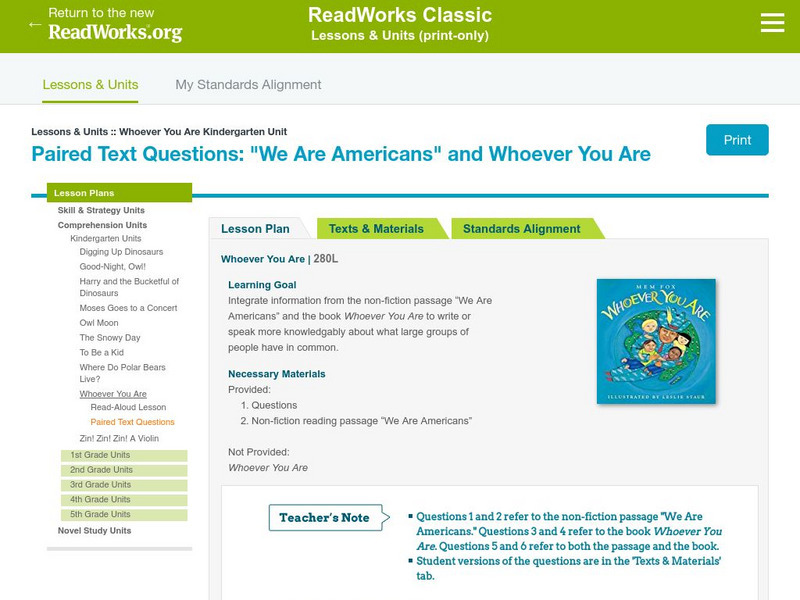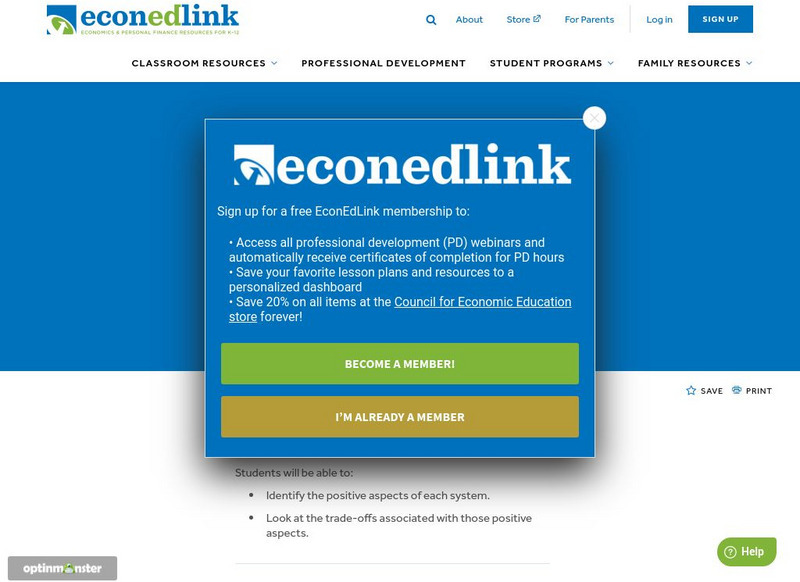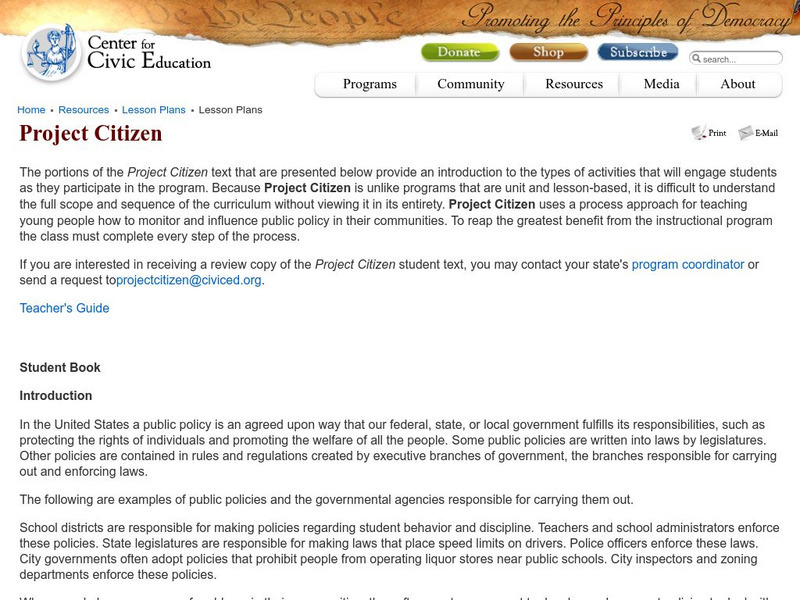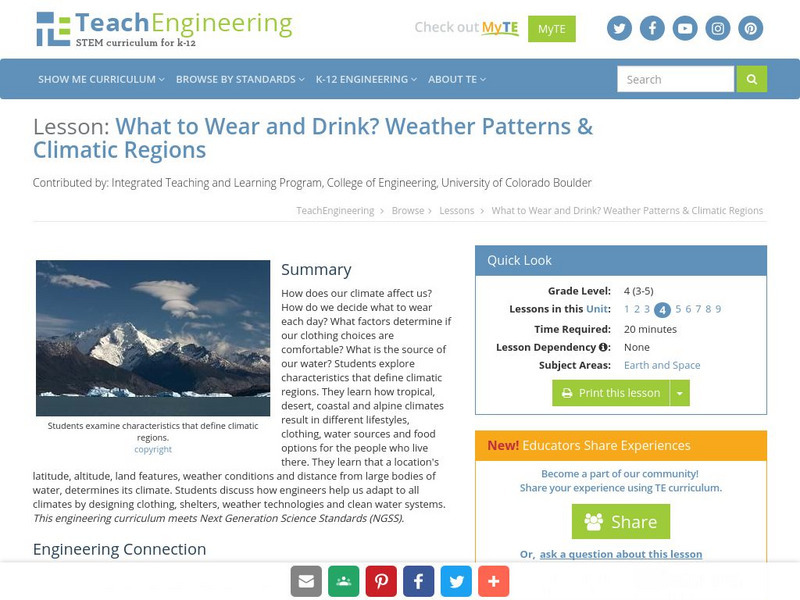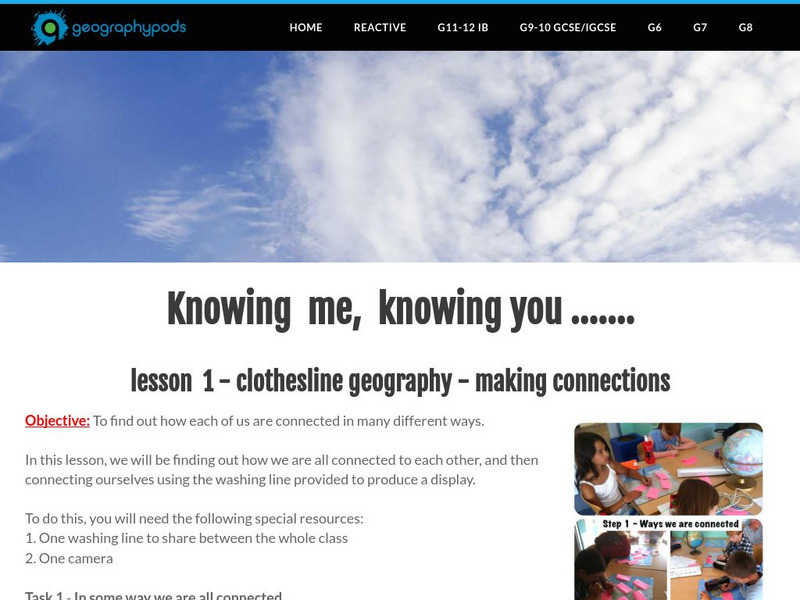Hi, what do you want to do?
US National Archives
Docsteach: We the People
In this activity, students will examine the original and final drafts of the Constitution and evaluate the significance of the selection of the words 'We the People.'
Center For Civic Education
Center for Civic Education: We the People: Project Citizen
This detailed lesson has students examining their community. The students then have class discussions, assignments and a portfolio to complete. A separate teacher site is available.
US National Archives
National Archives: We the People
View George Washington's annotated draft of the Constitution while discussing the ratification process. Specifically, the students will analyze changes to the Preamble of the Constitution. Critical thinking questions are provided.
Center For Civic Education
Center for Civic Education: What Basic Ideas in the Preamble to the Const [Pdf]
This lesson explores some ideas in the Preamble to the Constitution. Students learn the importance of the words, We the People. The lesson emphasizes that the power to govern belongs to the people who have created the government to...
Center For Civic Education
Center for Civic Education: We the People: Constitution Day Pdf [Pdf]
This teachers guide has activities for Constitution Day.
Better Lesson
Better Lesson: Communicating With Light: People
Who uses light to communicate? Go from sea to shining sea as we visit a lighthouse, board a Navy ship, and take a stroll on the red carpet! Students will investigate different ways of communicating with light and at the end of the lesson...
Center For Civic Education
Center for Civic Education: Dr. Martin Luther King Jr. Day
Three lessons for recognizing Dr. Martin Luther King Jr Day, taken from the We the People: The Citizen & the Constitution curriculum. These materials will help inform students about the national struggle for civil rights and equal...
Center For Civic Education
Center for Civic Education: Presidents' Day Lessons
Presidents' Day lessons for Grades 10-12 on the constitutional legacies of George Washington, James Madison, Abraham Lincoln, and Ronald Reagan, and how they shaped the history and Constitution of our nation. Each lesson was written and...
Broward Education Foundation
Broward Education Foundation: I Belong, You Belong, We Belong [Pdf]
The students begin with sharing their attributes. The students then work on their family diary, which is a home/school connection. Students will then learn about their city and state. Students will draw a map of their community first and...
Better Lesson
Better Lesson: Cause & Effect With "Why Mosquitoes Buzz in People's Ears" Day 4
We are finishing up the story today. Today we are finishing analyzing the story by thinking about how the events and characters developed by the end of the text.
Council for Economic Education
Econ Ed Link: Deceptive Advertising: Crossing the Line
Businesses use advertising to tell consumers about the goods and services they are selling. Businesses hope that their advertisements will convince people to buy their products. In this lesson, young scholars examine the ground rules for...
Louisiana Department of Education
Louisiana Doe: Louisiana Believes: English Language Arts: Grade 6: Out of the Dust
Focused on the Dust Bowl and how families fought for a meaningful existence and survival, this unit will offer students different perspectives on how people respond to adversity, the lessons that can be learned from hardship and failure,...
Utah Education Network
Uen: We Are Alike and We Are Different
Lesson that helps young scholars understand the features that make people alike and different. Students to create a paper face and a paper face book.
Read Works
Read Works: Paired Text Questions: "We Are Americans" and "Whoever You Are"
Students will compare information from the non-fiction book "We are Americans" and the book "Whoever You Are" to write or speak more knowledgeably about what large groups of people have in common.
Council for Economic Education
Econ Ed Link: The Price We Pay for Health: Us and Canada
Students will review the health systems of United States and Canada. They will identify the positive aspects of each system. They will look at the trade-offs associated with those positive aspects. In Canada, everyone has health care,...
University of Nebraska Omaha
University of Omaha: Why We Save [Pdf]
Why do people need to save money? This lesson plan is geared for Kindergarten through 2nd grade and helps students understand the reasons for saving.
Smithsonian Institution
Smithsonian Education: Why Use Money? Getting What We Need
Students will compare and contrast different methods of attaining the everyday items they need. Using the Akan people of Africa as an example of bartering, students will understand three different ways of paying for goods. Discussion...
National Endowment for the Humanities
Neh: Edsit Ement: Civil Rights Movement
This lesson on the Civil Rights movement is organized into three sections: "Identifying the Need for Change," "Ordinary People in the Civil Rights Movement," and "Historic Places in the Civil Rights Movement."
Scholastic
Scholastic: Adventures in Math: Lesson 3: Money in Our Community
Lesson focuses on how and why money circulated within our community. Being able to discern the difference between things we need and things we want is one of the foundational concepts for using money wisely. Goods and services are things...
NBC
Nbc Learn: Chance Discoveries: Lab Experiments, Unexpected Results
Many (if not most) experiments in the chemistry lab do not get significant results - or the expected results. For this Chemistry Now original video series, we highlight the curiosity, daring, and creativity of the best bench chemists by...
Center For Civic Education
Center for Civic Education: Project Citizen
This project is intended to help students learn how to express their opinions, and how to decide which level of government and which agency is most appropriate for dealing with a problem they identify. They then gather relevant...
TeachEngineering
Teach Engineering: What to Wear? What to Drink? Weather Patterns and Climatic R
How does our climate affect us? How do we decide what to wear each day? What factors determine if our clothing choices are comfortable? What is the source of our water? Learners explore characteristics that define climatic regions. They...
Geographypods
Geographypods: Knowing Me, Knowing You Making Connections
In this instructional activity, you will find out the many different ways we are all connected to each other.
National Endowment for the Humanities
Neh: Edsit Ement: Dr. King's Dream
There are 4 "Guiding Questions" which reveal the content of the lesson plan provided in "Dr. King's Dream:" "What do we mean by the term 'civil rights'?" "Who was Martin Luther King, Jr., and how did he fight for civil rights?" "What can...





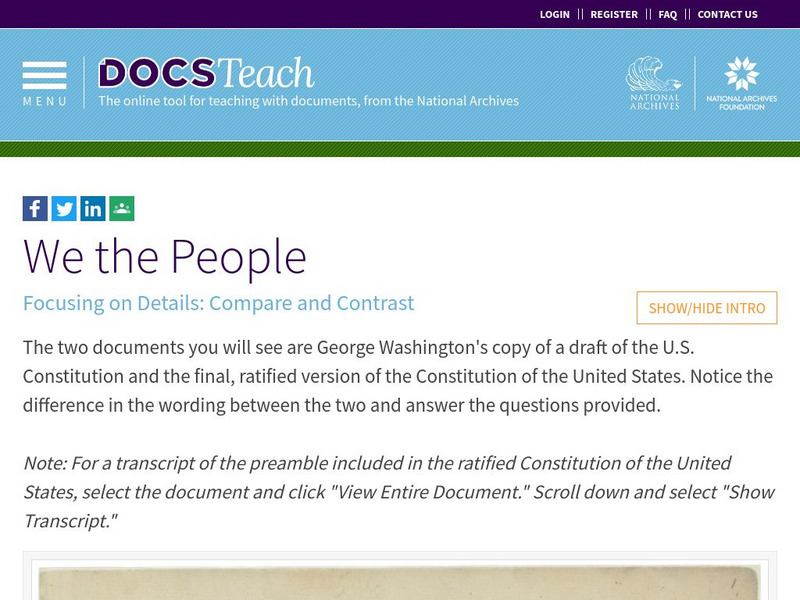

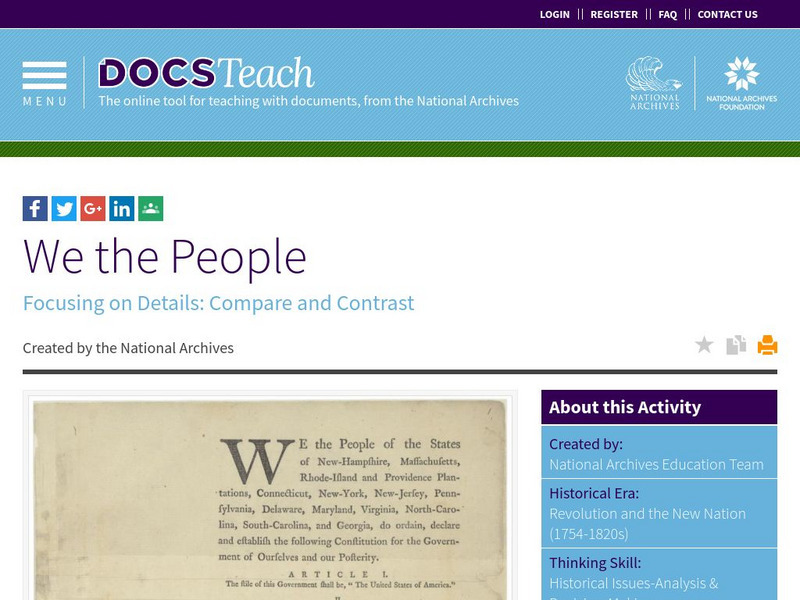
![Center for Civic Education: What Basic Ideas in the Preamble to the Const [Pdf] Lesson Plan Center for Civic Education: What Basic Ideas in the Preamble to the Const [Pdf] Lesson Plan](https://static.lp.lexp.cloud/images/attachment_defaults/resource/large/FPO-knovation.png)
